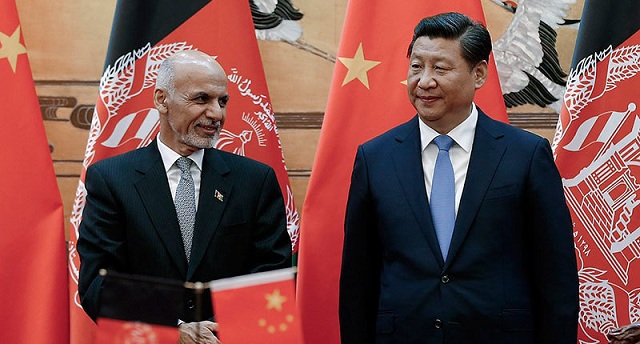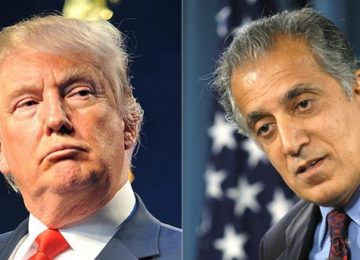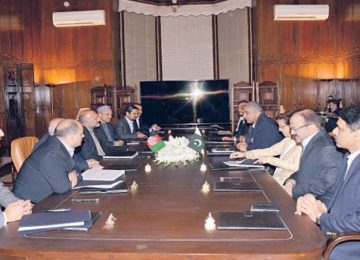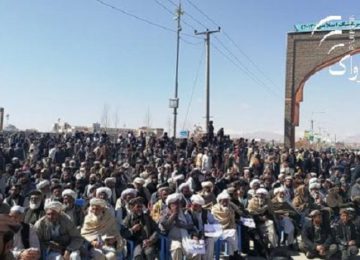The great-power competition centered on Afghanistan, which began in the 19th century between the British and Russian Empires, took a violent turn with the Soviet invasion of the country in 1979. During the 1980s the United States and its Cold War allies transformed the country into a graveyard for the Red Army, and ironically, they are now bogged down in a similar conflict, in the same geography, and with the same players.
Meanwhile, the Afghan people have paid the highest price for the endless conflicts on their soil, and despite tremendous international efforts since 2001, the prospects for peace and stability seem remote.
In fact, the Soviets’ premature exit in 1989, without a political settlement between the communist regime in Kabul and various mujahideen factions, precipitated a bloody civil war. Meanwhile, our Western allies abandoned us Afghans to the mercy of neighboring countries and thus enabled Pakistan to fulfill its strategic objective to transform Afghanistan into its rear base.
Consequently, Pakistani military strategists meticulously devised a strategy to isolate Afghanistan from the international community in the 1990s, and by 2001 they were very close to achieving their ultimate strategic objective through a subservient government in Kabul. Therefore, they were able to expand their strategic depth beyond the Hindu Kush mountains and were in the process of transforming an airfield in Kunduz, northern Afghanistan, into one of their strategic airbases.
Despite the military intervention by the US and the North Atlantic Treaty Organization against the Taliban in 2001, Pakistani military leaders did not abandon their long-term strategy in Afghanistan. They have stood firm in defiance of mounting pressure from successive US administrations, and they will not give up in the face of tough rhetoric coming from the current administration of President Donald Trump. They have heavily invested in the Taliban and are keen to extract advantages from the Afghan government before they make any tangible concessions toward peace and stability in Afghanistan.
Afghan President Ashraf Ghani rightly said in the beginning of his presidency in 2014 that before reaching out to the Taliban, he must find a common understanding with Pakistan. Therefore, he made a number of concessions to the Pakistani military, such as accepting an unprecedented invitation to the Pakistan Army General Headquarters, sending Afghan cadets to Pakistani military academies, and allowing the signing of a memorandum of understanding on intelligence sharing between the two countries, despite opposition within the Afghan intelligence community.
However, Ghani’s concessions have not been reciprocated by the Pakistani side, which has provoked a strong political backlash in Afghanistan. In addition, the Taliban categorically rejected his recent peace offer, which is an indication that the decision for an ultimate political settlement with the insurgents in Afghanistan lies in GHQ in Pakistan.
The Pakistanis’ demands are very clear, and they have communicated them directly and indirectly to the Afghan authorities over the past 17 years. They consist of:
- Recognition of the Durand Line as the international border between the two countries.
- Pakistan’s unrestricted water rights over the Kunar River.
- Reduced presence of India in Afghanistan.
- Privileged access to Afghanistan’s mineral resources.
- Unrestricted transit access to Central Asia via Afghanistan.
The Afghan political elite are fully aware of Pakistan’s demands and privately recognize that the Durand Line has become the de facto international border between the two countries. However, embarking on serious negotiations with the Pakistanis on these highly politicized and controversial topics is impossible in the current chaotic political situation in Kabul.
Similarly, former president Hamid Karzai failed in his efforts to reach out to the Taliban. In addition, the lack of meaningful progress in regional diplomacy made him resentful, and therefore he became angry not only with Pakistan but also with Afghanistan’s key strategic partner, the United States.
In the event of a premature US military withdrawal without a lasting political settlement, Afghanistan’s neighbors and key regional powers will pursue their conflicting interests as they did in the 1990s. Therefore, Pakistan will not be able to manage Afghanistan alone and might appeal for support from its key regional allies such as China and Saudi Arabia.
However, the Chinese authorities have shown tremendous interest in peace and stability in Afghanistan, not only because of threats emanating from terrorists and radical Islamist groups, but also because of Afghanistan’s untouched mineral reserves right on their doorstep. Therefore, China would greatly benefit by working with the United States to stabilize Afghanistan rather than inheriting a messy country in its back yard and thus becoming directly involved in the Afghan quagmire.
Meanwhile, the recent appeasement between the United States and China over trade tensions and an eventual resolution of the nuclear crisis on the Korean Peninsula might open the gates for greater cooperation between the two dominant powers in Asia, which could easily be extended to Afghanistan. If President Xi Jinping was able to bring North Korean leader Kim Jong-un to the negotiation table with President Trump, then China has all the necessary leverage to rein in the Pakistani military’s adventurous ambitions in Afghanistan.
After the failure of all regional diplomatic initiatives including the Istanbul Process, there is still hope for a brokered negotiation between Afghanistan and Pakistan under the joint auspices of the United States and China, which have tremendous influence respectively over Afghanistan and Pakistan. Therefore, the Quadrilateral Coordination Group framework, where Afghanistan and Pakistan had been negotiating in the presence of the US and China, must be revived.
We Afghans are willing to respond positively to Islamabad’s legitimate interests in Afghanistan and seize this unique opportunity of the US military presence in the country to resolve our historical differences with Pakistan and thus put an end to the cycle of conflict.
The author Haroun Mir has been engaged in the political evolution of Afghanistan for more than two decades as an adviser to foreign donors and governments, as an analyst and researcher and as a manager in different donor funded programs. Currently he serves as a political analyst and independent consultant. Mir holds a Master of Arts in economics from George Mason University in the US and a License and Bachelor of Science in physics from the Université Denis Diderot in France and George Mason University respectively.
The article originally appeared in Asia Times Online.
Disclaimer: Views expressed on this blog are not necessarily endorsed or supported by the Center for Research and Security Studies, Islamabad.








